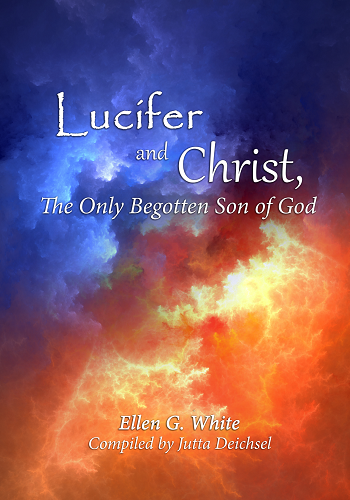Fear of God or Fear of Self
I heard someone mention this quote in a sermon recently:
We shall make the apostle’s confession our own. “I know that in me (that is, in my flesh) dwelleth no good thing.” Romans 7:18. “God forbid that I should glory, save in the cross of our Lord Jesus Christ, by whom the world is crucified unto me, and I unto the world.” Galatians 6:14. In harmony with this experience is the command, “Work out your own salvation with fear and trembling. For it is God which worketh in you both to will and to do of His good pleasure.” Philippians 2:12, 13. God does not bid you fear that He will fail to fulfill His promises, that His patience will weary, or His compassion be found wanting. Fear lest your will shall not be held in subjection to Christ’s will, lest your hereditary and cultivated traits of character shall control your life. “It is God which worketh in you both to will and to do of His good pleasure.” Fear lest self shall interpose between your soul and the great Master Worker. Fear lest self-will shall mar the high purpose that through you God desires to accomplish. Fear to trust to your own strength, fear to withdraw your hand from the hand of Christ and attempt to walk life’s pathway without His abiding presence. Chris Object Lessons, p. 161
It reminds me of this other quote that a friend sent me a few weeks ago; it tells me that walking the pathway alone is trusting in my own merits and that is something I must fear.
Discussions may be entered into by mortals strenuously advocating creature merit, and each man striving for the supremacy, but they simply do not know that all the time, in principle and character, they are misrepresenting the truth as it is in Jesus. They are in a fog of bewilderment. They need the divine love of God which is represented by gold tried in the fire; they need the white raiment of Christ’s pure character; and they need the heavenly eyesalve that they might discern with astonishment the utter worthlessness of creature merit to earn the wages of eternal life. There may be a fervor of labor and an intense affection, high and noble achievement of intellect, a breadth of understanding, and the humblest self-abasement, laid at the feet of our Redeemer; but there is not one jot more than the grace and talent first given of God. There must be nothing less given than duty prescribes, and there cannot be one jot more given than they have first received; and all must be laid upon the fire of Christ’s righteousness to cleanse it from its earthly odor before it rises in a cloud of fragrant incense to the great Jehovah and is accepted as a sweet savor.
I ask, How can I present this matter as it is? The Lord Jesus imparts all the powers, all the grace, all the penitence, all the inclination, all the pardon of sins, in presenting His righteousness for man to grasp by living faith—which is also the gift of God. If you would gather together everything that is good and holy and noble and lovely in man and then present the subject to the angels of God as acting a part in the salvation of the human soul or in merit, the proposition would be rejected as treason. Standing in the presence of their Creator and looking upon the unsurpassed glory which enshrouds His person, they are looking upon the Lamb of God given from the foundation of the world to a life of humiliation, to be rejected of sinful men, to be despised, to be crucified. Who can measure the infinity of the sacrifice! Faith and Works, p. 21-24.





